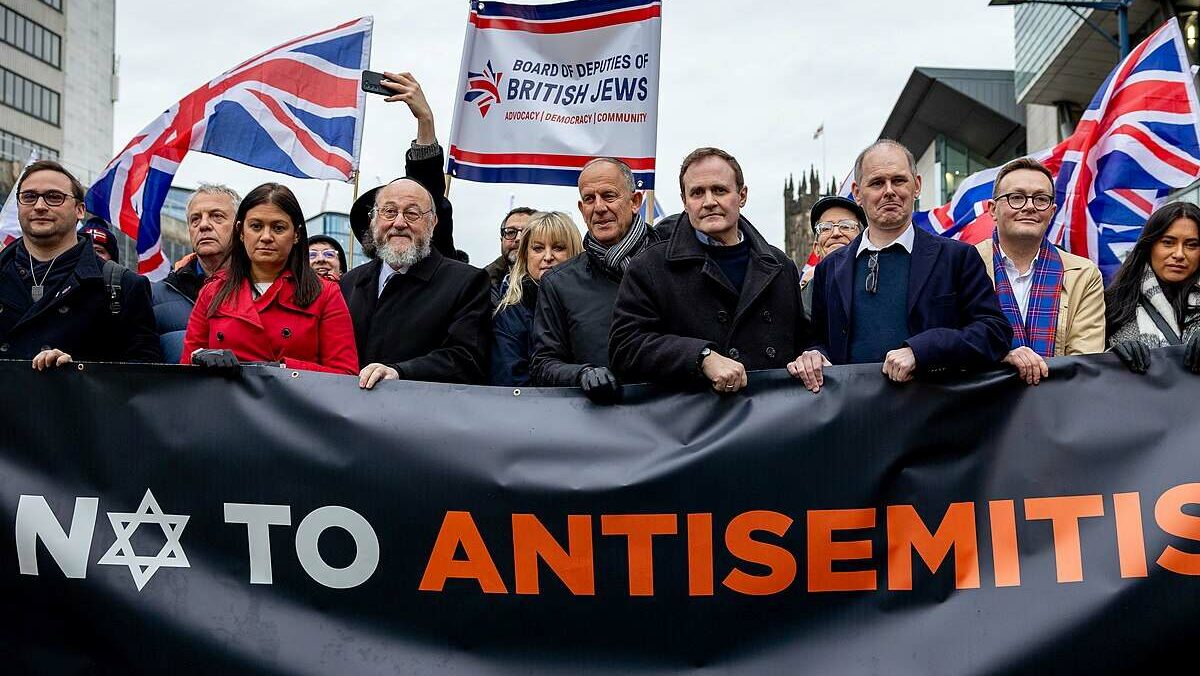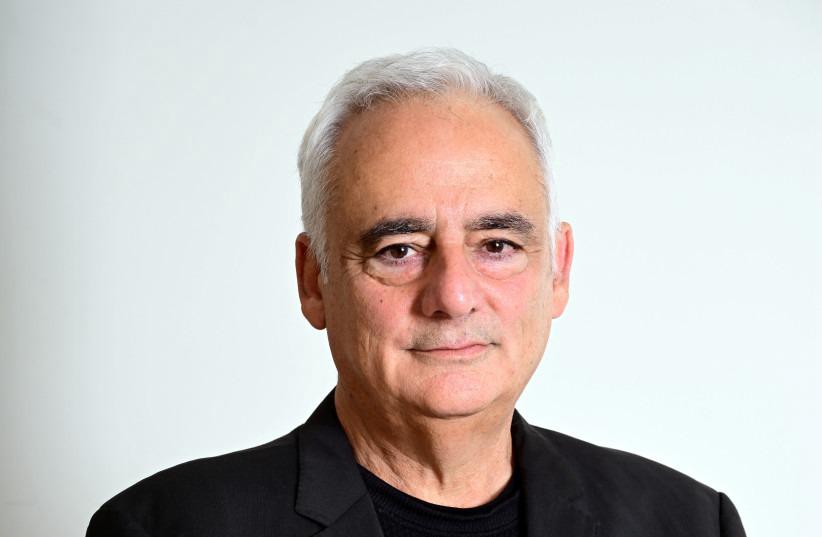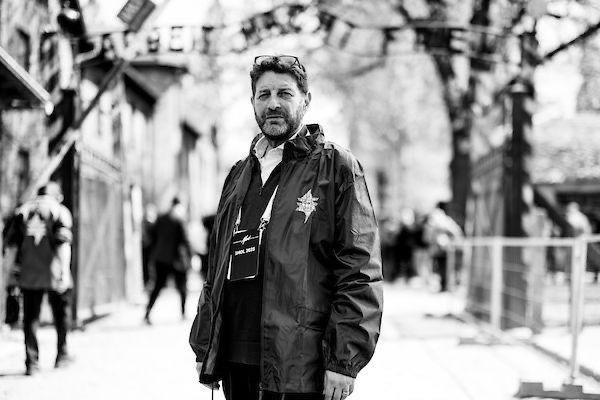After Manchester: How Britain Is Fighting the New Threat of Antisemitism

The morning after last month’s Manchester synagogue attack, the rain was thin and persistent – the kind that blurs the city’s red brick into muted shades of grief. Outside Heaton Park Hebrew Congregation on Middleton Road, a handful of congregants stood in silence behind police tape, clutching umbrellas and disbelief. Inside, prayer shawls and books lay scattered where worshippers had dropped them in panic.
It had been Yom Kippur, the holiest day of the Jewish year, when the attacker burst into the synagogue wielding a knife and began stabbing congregants. Two people were killed, at least three others seriously injured. One of the victims, police later confirmed, died after being accidentally shot in the chaos of the response. The assailant, a 23-year-old British citizen who had been radicalised online, was shot dead at the scene.
In the hours that followed, the UK’s Jewish community moved between shock and familiarity. Police patrols appeared outside schools and kosher shops. Synagogues across the country reviewed their security procedures. Rabbis tried to steady congregants who had already been living with unease for months.
The Year the Walls Closed In
Antisemitism in Britain isn’t new. But since the 7 October 2023 Hamas attacks in Israel and the subsequent Gaza war, it has surged – in the chants echoing from protest marches, in campus boycotts, and, crucially, in soaring numbers of antisemitic attacks.
The Community Security Trust recorded the highest number of antisemitic incidents in recent British history in 2024 and 2025 – assaults, vandalism, abuse, intimidation – with spikes following every flashpoint in the Middle East.
“It’s not coming from one place anymore,” says Dr Charles Asher Small, a Cambridge University fellow and founder of the Institute for the Study of Global Antisemitism and Policy (ISGAP). “It’s a cocktail – far-right conspiracies, far-left denialism, imported Islamist ideology, all amplified by social media. And institutions have been slow, or unwilling, to respond.”

Small has spent two decades tracing the architecture of modern antisemitism – how money, ideology, and disinformation migrate across borders and into classrooms, newsrooms, and city squares.
He believes academia has become a frontline. “Universities were supposed to be bastions of critical thinking,” he says. “Instead, they’re hosting ideologies funded and fed by authoritarian regimes.” ISGAP’s investigations have traced foreign-linked donations flowing into British research centres – some with ties to Islamist movements or autocratic governments – often with little to no public disclosure.
Memory as Resistance
If antisemitism today is fuelled by distortion and denial, then Holocaust memory has become one of its most powerful antidotes. Across Britain, educators and community leaders are reframing remembrance not as mourning, but as a form of cultural resistance – an active way to fight disinformation, indifference, and the slow erosion of empathy.
Few efforts capture that transformation more vividly than March of the Living UK, which takes hundreds of British students, teachers, and civic leaders to Poland each spring. Over five days, they walk the paths between ghettos and camps – Treblinka, Majdanek, Auschwitz-Birkenau – not as tourists, but as witnesses. The march ends at Birkenau on Yom HaShoah, Israel’s Holocaust Remembrance Day, where survivors lead participants through the gates of the camp, often hand in hand.
“It’s a journey designed to build resilience as much as memory. Participants don’t just study the mechanics of genocide; they trace how prejudice grows from propaganda, how silence becomes complicity, and how the lessons of the past map onto the prejudices of the present,” said Scott Saunders, Founder and Chairman of March of the Living UK.

“We talk about how hatred was normalised, how ordinary people looked away – and then we ask: where are we looking away today? The idea is that remembrance isn’t just about mourning; it’s about recognising how intolerance takes root in everyday life,” Saunders added.
The power of that journey lies in what comes after. When students return home, they carry the memory into classrooms, campuses, and communities that need it most. Remembrance becomes a shared responsibility – to teach, to remember, and to ensure that the past remains a guide, not a warning.
Building a Culture of Connection
After the Manchester attack, the Board of Deputies of British Jews declared that it was “an attack on the entire community, on decency, humanity, and the shared values that bind us together.” When the King later visited the synagogue, he called it “an assault on the very idea of British decency.” Yet beyond the royal rhetoric, the response that truly mattered came from the ground up – from Jewish communities reaffirming their place within British society and reaching out to their neighbours.
That same spirit of renewal underpins President Isaac Herzog’s “Voice of the People” initiative, which seeks to rebuild trust and connection across the Jewish world. The project has become a framework for communities to speak, listen, and act together – to share not only their fears, but their hopes.
“We are building a living bridge between communities,” says Shirel Dagan-Levy, CEO of Voice of the People. “Not by speaking for them, but by listening to them. Our mission is to ensure that every Jewish voice, wherever it lives, helps shape the future of the Jewish people.”
That message of connection also guides Sylvan Adams, President of the World Jewish Congress for Israel and the Region, who represents the organisation’s outreach to Jewish communities worldwide. In his role, Adams – a major philanthropist – is working to strengthen the ties between Israel and the diaspora.
“The World Jewish Congress exists to safeguard Jewish life everywhere. My focus is on making sure that every community feels seen, supported, and part of one people,” Adams said. “It’s not just about defending against antisemitism; it’s about empowering communities to stand tall and know that Israel stands with them. When Jewish life anywhere feels threatened, it’s a call to strengthen the bonds everywhere.”
Together, these efforts reflect a quiet transformation – a shift from speaking about communities to standing with them, from top-down advocacy to grassroots listening. In an age of polarisation, this is how trust is rebuilt and belonging restored.
What Comes Next
The Manchester killings forced Britain to look hard at itself. Whether they will change its culture is still an open question. The government has promised tougher hate-crime enforcement, while universities debate definitions and funding transparency. Schools are expanding Holocaust and human-rights education. Synagogues have added security patrols, even as community leaders insist that Jewish life must remain open and visible.
Yet the deeper challenge lies in creating a Britain in which Jews and all minorities are genuinely protected – not only by police presence or legal definition, but by a social instinct that rejects hate before it takes hold. Laws can punish prejudice, but only culture can prevent it.
“Antisemitism is a mirror,” says Dr Charles Asher Small. “When it rises, it shows us what kind of society we’ve become.”
The memorials outside Heaton Park Synagogue are still standing: flowers by the gates, candles burned down to their bases. On some, handwritten notes read Never Again. Whether that promise endures will depend on how schools teach, how leaders speak, and how quickly people stand up when hate appears again.
Rolling Stone UK publishes articles from a variety of contributors which express a wide range of viewpoints. The positions taken in these articles are not necessarily those of Rolling Stone UK.
